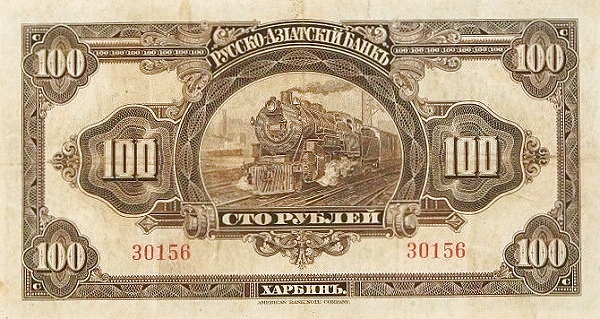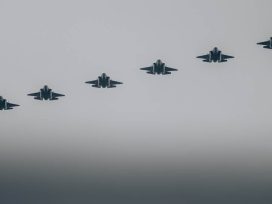In his history of the Peloponnesian War, Thucydides famously wrote, ‘The strong do what they can and the weak suffer what they must.’ While some contemporary analysts draw on Thyucidides to help us comprehend Russia’s actions, it is possible that this particular statement of brutal realism is most useful for understanding the dilemma China faces in Ukraine.
Note that Thucydides said the strong do what they can, not whatever they want. For China, Russia’s invasion of its neighbour and Europe’s second largest country puts them squarely within the confines of this paradox. As the Athenians learned, (and the Russians might), there are limits for the strong and their friends, even when they profess none.
For decades now, China has been pushing to be counted among the world’s major powers, and to be accorded the appropriate respect, including by Europe. Some argue that China does not want to destroy the existing global power structure but make it more equitable; others say Xi Jinping wants a ‘radically transformed international order’.
In either variant, the Chinese leadership – like its counterpart in Moscow – resents and resists western involvement in regions near their homeland. Both Xi and Vladimir Putin tout a national form of ‘democracy’ that strengthens their own autocratic rule; for example, by ending term limits and increasing pressure on independent actors, dissidents and free media.
On the global stage, Ukraine’s fate – and China’s role in it – tests the credibility of Beijing’s posture as an opponent of big power interference. No stranger to humiliations forced upon it by outside powers (including Russia), China has used this principle to frame the goal of reintegrating Hong Kong and at some point, Taiwan. Given its own history – and leaving aside Tibet – the regime’s challenge to predatory external powers has always had at least the ring of authenticity. But now, with Russia carving up a neighbouring state and doing to Ukraine exactly what was done to China, that stance is suspect.
So far, Beijing has been clear about its support for Russia’s justification of its actions. China has labelled NATO expansion the cause of the crisis and blamed the US for ‘fanning the flames’. Support for Ukraine’s territorial integrity is tied to respect for Russia’s ‘legitimate security demands’. In holding to this position, Chinese leaders rebuffed American overtures and warnings of the invasion – including the provision of intelligence information – and denounced US-led sanctions as illegal.
When Russian foreign minister Sergei Lavrov visited China last month, the two nations offered a common vision of ‘global multipolarity and the democratization of international relations’. As part of its assault on US dominance, Beijing has repeatedly warned European leaders that the EU should not allow their policies to be ‘kidnapped’ by Washington.
When Russia invaded and started bombing Ukrainian cities, Beijing fell back on urging ‘dialogue and negotiation’ and refused to sign on to two UN resolutions condemning Russian actions. Even as graphic evidence of Russian atrocities in occupied areas emerged, Beijing could not bring itself to condemn these actions or support the suspension of Russia from the UN Human Rights Council.
At home, China’s state controlled media have reinforced the Russian view of its ‘special operation’, even to the point of including accusations of American funded bio-weapons factories in Ukraine. With regard to Russia and Ukraine, Beijing has been practicing what has been labelled ‘pro-Russian neutrality’.
No limits?
Well before the Russian invasion, US challenges to China under US Presidents Trump and Biden had sparked Chinese moves to improve relations with Russia. In 2019 the two states signed a ‘comprehensive and strategic partnership’ that allowed for greater and more sophisticated military cooperation and exercises. Bilateral trade grew – including a huge natural gas deal – and China became Russia’s single largest trade partner.

A banknote issued by the Russo-Asiatic Bank denominated in “Rubles” for circulation in the Republic of China. Image via Wikimedia Commons
Russian-Chinese friendship was formally reinforced in February 2022, when the partners in this marriage of convenience met at the Winter Olympics. Their official statement included the now famous assertion that there were ‘no limits’ to Chinese-Russian cooperation.
Both the US and EU are exasperated by Beijing’s support for Russia in Ukraine. The EU High Representative for Foreign Affairs, Josep Borrell, called the recent China-EU summit ‘a dialogue of the deaf’, and complained that Beijing ‘did not want to talk’ about Ukraine. In April, Washington issued the latest in its series of ‘warnings’ to China not to provide help to Russia. Chinese rhetoric and rejection of both the US and European positions on Ukraine has been evident and consistent.
But taking a broader view might be in order. Perhaps channelling Thucydides, Andrew Nathan reminds us that ‘Chinese leaders display ambition – but also caution and realism.’ Can we see such caution? Are there guardrails that constrain China’s support for Russia? Recognizing these might help western policymakers avoid the Cold War mistake of consistently overestimating the power and capabilities of one’s adversaries.
For example, research suggests that China’s strong desire to push back against the West allowed it to be ‘played’ by Russia, or at least miss the signs of Russia’s intentions – so much so that 6,000 or so of its own citizens in Ukraine were left scrambling for ways to get out of harm’s way. Despite being dragged along, Beijing could still have aided Russia militarily, as Moscow requested. But no less an authority than Jake Sullivan, US National Security Advisor, has stated that no evidence of such help has been found.
Economically, China runs substantial global reputational and financial risks from supporting Russia’s violent attack. While Xi might be Putin’s enabler and stresses the fundamental unfairness of the global power structure, China has no interest in a crisis that could wreck the system within which it has flourished. Its trade and transactions take place largely within the dollar-dominant financial system and it has few alternatives if it is punished for evading these sanctions. While Beijing has boasted that trade with Russia would continue normally, it cannot jeopardize the much larger and more profitable dealings with the EU and US. Trade with these partners accounts for more than one-quarter of China’s foreign trade.
Indications of Chinese caution include the suspension by the Asian Infrastructure Investment Bank (a Chinese creation) of all activities related to Russia and Belarus. China has not acted to slow the halt of the rouble against the yuan or let Russia use its substantial reserves of China’s currency. It also reportedly refused to supply spare parts for Russian aircraft and – rhetoric aside – has not prohibited Chinese companies from complying with US sanctions.
From a geostrategic perspective, China does not benefit by having the US and Europe more united than they have been in a decade. The level of cohesiveness among the western allies has been impressive and includes their willingness to impose sanctions, block financial access and even scuttle centrepiece projects like Nordstream II. After decades outside the alliance, both Sweden and Finland are now close to joining. As The Atlantic put it, Putin’s invasion has produced ‘a unified West, a more militarized Europe, and a stronger, more attractive NATO’. Hardly China’s preferred outcome.
Concerns such as these can be seen as driving Beijing’s repeated offers to help negotiate a ceasefire and its public endorsement of a joint effort with France and Germany for peace talks. Whatever its passion for Russia’s cause, China needs this war to end. Xi himself made this clear with his warning to the EU not to ‘tie the whole world’ to the crisis brought on by Ukraine. China’s leaders may say there are ‘no limits’, but there does seem to be a ‘bottom line’, a point made recently by Jia Qingguo, a professor at Peking University.
Does this indicate the presence of domestic dissent from the official position, as some have suggested? Last month a high regional official in Shanghai, Hu Wei, posted a blistering assessment of Putin’s ‘blitzkrieg’ and its possible impact on China. His advice was blunt: ‘China cannot be tied to Putin and needs to be cut off as soon as possible.’ At the same time, five of China’s most respected historians publicly condemned the ‘invasion’, a term the Chinese official media does not use. ‘As the Chinese saying goes’, they wrote, ‘you cannot call a deer a horse.’
Access to both articles was immediately blocked by the Chinese government. Whether or not these are signs of Chinese hesitance, or possibly even a trial balloon to prepare the public for a switch in course, US and European policymakers might do well to keep in mind the limits to China’s global options as well as its stake in Ukraine itself.
China’s economic stake in Ukraine
Before the current war on its territory, Ukraine’s single largest trading partner was not Russia, or Germany or the US. It was China. Ukraine’s size, location, ports, and Deep and Comprehensive Free Trade Area agreement with the EU made the country a high-value addition to China’s global trade and investment project, the Belt and Road Initiative (BRI).
Kyiv joined the BRI in 2017 and was enthusiastic about the possibilities. President Volodymyr Zelensky said his country could be ‘China’s bridge to Europe’. Trade surged and Ukraine became China’s largest supplier of corn, barley and other grains, and a crucial source of several key industrial ores. China’s first aircraft carrier, the Liaoning, was a refitted Soviet-era ship purchased from Ukraine, which proved a steady source of military parts and equipment.
For Chinese exporters and firms, the gains have been clear. In the face of suspicion and hostility from both the US and the EU over China’s trade and investment policies, Chinese companies have seen great opportunities in Ukraine. As in other BRI countries, Chinese funds poured in to upgrade Ukraine’s ports and infrastructure. The country provided a crucial link for the completion of the long-desired direct China-Europe Railway Express.
When Russia seized Crimea in 2014 and supported the separatists in Donbas, Beijing was careful to neither recognize nor condemn these actions. But China also bet heavily on the continued viability and independence of Ukraine. In 2020 PowerChina agreed to build the largest windfarm in Europe, outside Donetsk, and COFCO, China’s largest food and agricultural company, signed on to triple the grain handling capacity of the port of Mariupol. Now these economic ventures have been destroyed. At the same time, the value-added of Ukraine for the BRI is threatened with extinction. Such losses cannot be recouped during a war.
Principles, patria and interest
For China, developments in Ukraine involve principles as much as economics. Beijing never fails to assert that Taiwan is part of China and must not be treated as a separate state. When Lithuania took the modest action of renaming its ‘Taipei Office’ the ‘Taiwan Representative Office’, Beijing blocked trade and threatened companies both inside Lithuania and across Europe with punishment if they dealt with the office. But Beijing made no protest when Russia undertook even more intrusive actions in Donetsk and Luhansk, supporting rebels there in 2014 and recognizing them as independent states this year. This hardly squares with China’s longstanding championship of the sanctity of sovereignty or, for that matter, its opposition to the use of force.
China is not the first country to wield principles when it suits them and put them back in the closet when they do not. The US, creator of the Monroe Doctrine and ferocious economic pressure on Cuba, is not innocent of such dissembling. As proponents of the realist school of international relations consistently remind us, power usually trumps principle. But as the Athenians learned, power is not unlimited.
We might use this lens to keep a clear-eyed view of exactly what China is doing, as opposed to – or in addition to – what it is saying. Beijing may indeed claim to be Russia’s ‘best and bosom friend’, but China’s true and best friend is China. As we try to craft a policy toward China that does not automatically recreate the Cold War, we might recall Lord Palmerston’s assessment of England’s external interests: ‘We have no eternal allies, and we have no perpetual enemies,’ he said. ‘Our interests are eternal and perpetual.’
What applied as a policy principle for England’s actions in the nineteenth century might work equally well for our understanding of China’s in the twenty-first.








